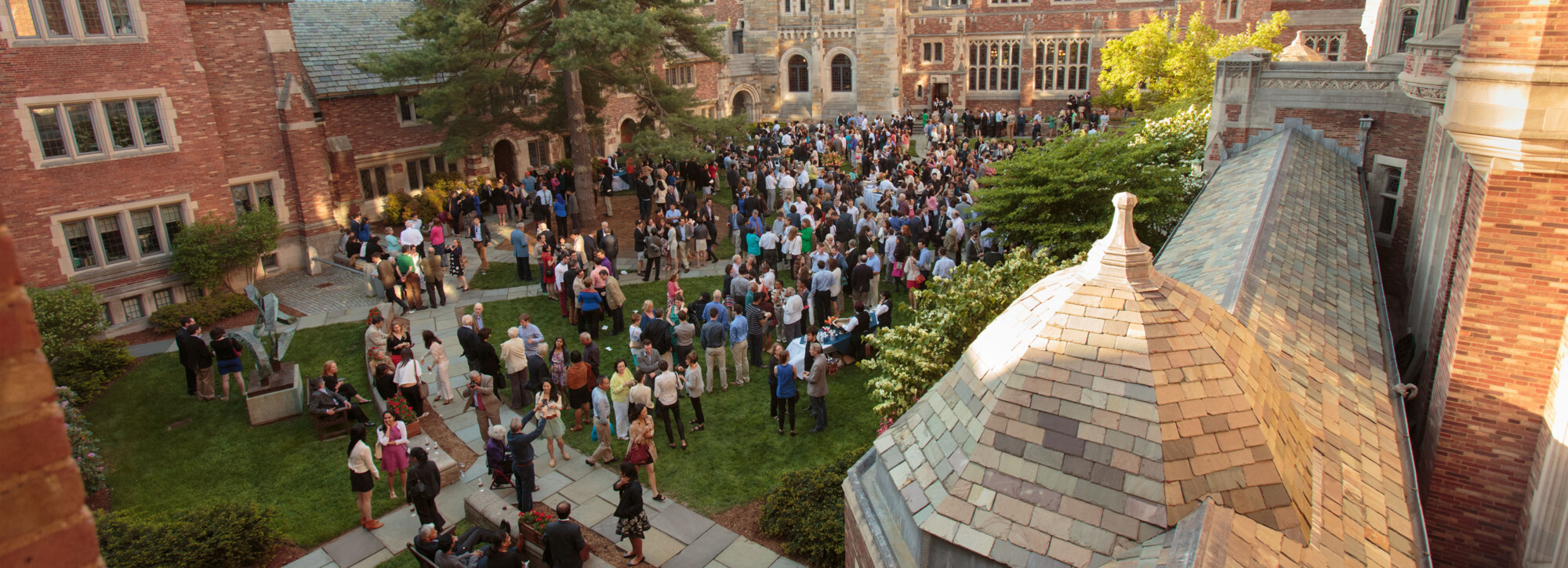
“At the Merchant Marine Academy, my class was only 10% women,” said Kate Ahrens ’27. “I don’t think I realized how much representation matters until I was in an environment where there weren’t a lot of people like me around.”
When Ahrens was contemplating a pivot to the legal field after 14 years of service in the Coast Guard, she came across a series of profiles of six veterans at Yale Law School. “I’m more of a mid-career switcher, and seeing that other people had done that and had similar experiences, and that I wouldn’t come to law school and be the only veteran — that was really important to me,” she said.
Ahrens had altered trajectory before. She completed her undergraduate degree at the U.S. Merchant Marine Academy (USMMA), one of five service academies in the United States. When she graduated in 2010, Ahrens commissioned into the U.S. Coast Guard, where her role was to help perform inspections of the commercial vessels she’d learned to sail on during her time in the Academy.
“Who better to serve that community than someone who knows it really well? We do international convention and U.S. code compliance for vessels that sail all over the world, inspecting everything from small vessels to cruise ships and container ships,” she said. After 11 years of experience — and a graduate program in engineering — Ahrens decided she wanted to broaden her exposure to the breadth of Coast Guard missions.

Ahrens’ next move took her to Washington, D.C., this time to a position at U.S. Coast Guard Headquarters.
“I leaped into a job that we call ‘Program Reviewer,’ in the Office of Budget and Programs, [which] involved making sure that the Coast Guard was following legislation that had passed Congress and building the Coast Guard’s budget. During that process, I got to see the overhaul of military justice through the National Defense Authorization Act (NDAA). That spurred my interest in going to law school,” she said.
The 2022 NDAA included the largest overhaul in military justice in history, said Ahrens, including improvements to the way some crimes, including sexual assault, are adjudicated — namely, by removing prosecutorial decisions from the chain of command and assigning them, instead, to trained professional prosecutors. She was able to spend time with attorneys involved and hear their interpretation of the law.
Around this time, Ahrens heard of a case of a female sailor who had been assaulted at sea on a merchant ship. Ahrens knew the vulnerabilities of being at sea, but this sailor, she said, wasn’t covered by military protections as her assailants were not in uniform and thus not covered by the Uniform Code of Military Justice (UCMJ).
“I thought, ‘The people making the biggest difference are the attorneys that help these individuals,’” she said. The case further inspired Ahrens to pursue a legal education.
Ahrens, who rose to become a lieutenant commander, is proud of her 14 years with the Coast Guard. During her time at Yale Law School, she’ll join the U.S. Coast Guard Reserve, spending a couple weekends per year on active duty and standing by to be called to service during national emergencies.
“I love the Coast Guard and the work that the organization does. I’m excited there are options to stay involved with it and also pursue my dreams,” she said.
And while she loves the challenges of the maritime environment, she’s also looking forward to broadening her skill set and exploring other areas of the law.
“I’m from Cooperstown, New York, and there’s a special place in my heart for the needs of rural Americans,” she said. “Ultimately my service has always been, and will always be, about serving the needs of people.”
This is one of a series on the growing military community at Yale Law School, where veterans and service members comprise 9% of the class of 2027.
